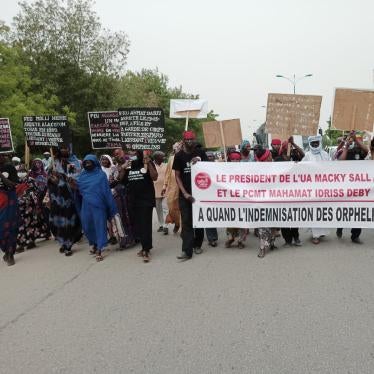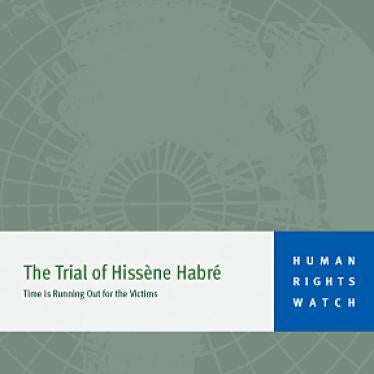After years of perseverance from victims of Habré's violent rule, the case against the former dictator is finally gathering steam.
"Since when has justice come all the way to Chad?" a former political prisoner said in 2000 when Human Rights Watch and local activists first began pressing for accountability for the country's exiled former dictator Hissène Habré. Habré, who brutalised this former French colony from 1982 to 1990, was then living safely in a seaside villa across the continent in Senegal, enjoying the millions he looted from his impoverished nation’s treasury.
But justice has eventually come to Chad – 23 years after the end of Habré’s rule – in the form of four Senegalese judges who arrived in the country’s dusty capital to investigate charges against Habré, filed by a special Senegalese court established earlier this year.
Habré’s government, backed by the United States and France as a bulwark against Libya's Muammar Gaddafi, was responsible for widespread political killings, systematic torture, thousands of arbitrary arrests, and the targeting of particular ethnic groups. In 1990, he was deposed by his former army chief, Idriss Déby Itno, who is still president today.
Yet it took over two decades of campaigning for the International Court of Justice to order Senegal last year to prosecute Habré “without further delay”, and for the new president of Senegal, Macky Sall, to pledge to do so immediately.
The judges brought three forensic archaeologists from Argentina to scout the mass graves that still litter Chad. The investigators travelled 10 hours to a farm in the south where Habré’s forces are said to have massacred hundreds of former rebel soldiers who had come to turn in their arms. Clement Abaifouta, the president of the leading association that represents the victims of Habré’s rule, took them to a field on the outskirts of N’Djamena where he was forced to bury hundreds of fellow prisoners who died from mistreatment, disease, and neglect.
The judges also collected copies of the files of Habré's dreaded political police, theDocumentation and Security Directorate (DDS), which I stumbled on in 2001. A team of victims had sorted tens of thousands of documents for entry into a database. The list was long – 1,208 dead prisoners and 12,321 victims of torture and other abuses.
The judges, making their second visit, have now interviewed over 1,000 victims, some of whom, finally believing that justice has taken root, came forward to tell their stories for the first time. One was the businessman Mahamat Moussa Mouli, 67, who showed the judges the rope scars on his wrists and ankles; he said Habré personally hung him tightly from two poles until he lost circulation.
An African landmark
There is a palpable sense of victory today among victims that their obstinacy and perseverance has finally paid off. Souleymane Guengueng, who watched dozens of his cellmates die during two-and-a-half years in Habré's jails, promised himself that if he got out alive, he would fight for justice. He rallied wary survivors and widows and went to Senegal to press charges in 2000, leading to Habré’s first arrest there, before the Senegalese government stalled for 12 years. Although threats from Habré's henchmen forced Guengueng into exile, he came back triumphantly this week for the judges’ visit. The victims’ lead lawyer, Jacqueline Moudeïna, is now a national icon. She still has shrapnel in her leg from 2001, when a grenade was thrown at her by one of Habré's security chiefs, who had become police chief of Chad's capital.
The victims’ victory in Senegal has changed the landscape in Chad as well. The Chadian authorities this year finally arrested 27 Habré-era security officers against whom the victims filed cases in local courts in 2000. After Habré’s indictment in Dakar in July, President Déby announced that the government would ensure that the victims were compensated at the end of the procedure.
The Senegalese judges are expected to complete their investigation in the next nine months and recommend that Habré, who is now in pre-trial detention, be sent to trial. The victims – represented by Moudeïna – are participating as civil parties. It would be the first time in modern history that the courts of one country tried the leader of another for alleged grave crimes under international law.
Many African leaders argue that international courts unfairly target Africa. The real problem, however, is the failure of African courts to bring to justice leaders who have committed heinous crimes against their own people. If it is fair and transparent, Habré’s trial would strike a blow against the cycle of impunity that has debilitated Africa. And it would also show that tenacious victims can bring a dictator to justice.








